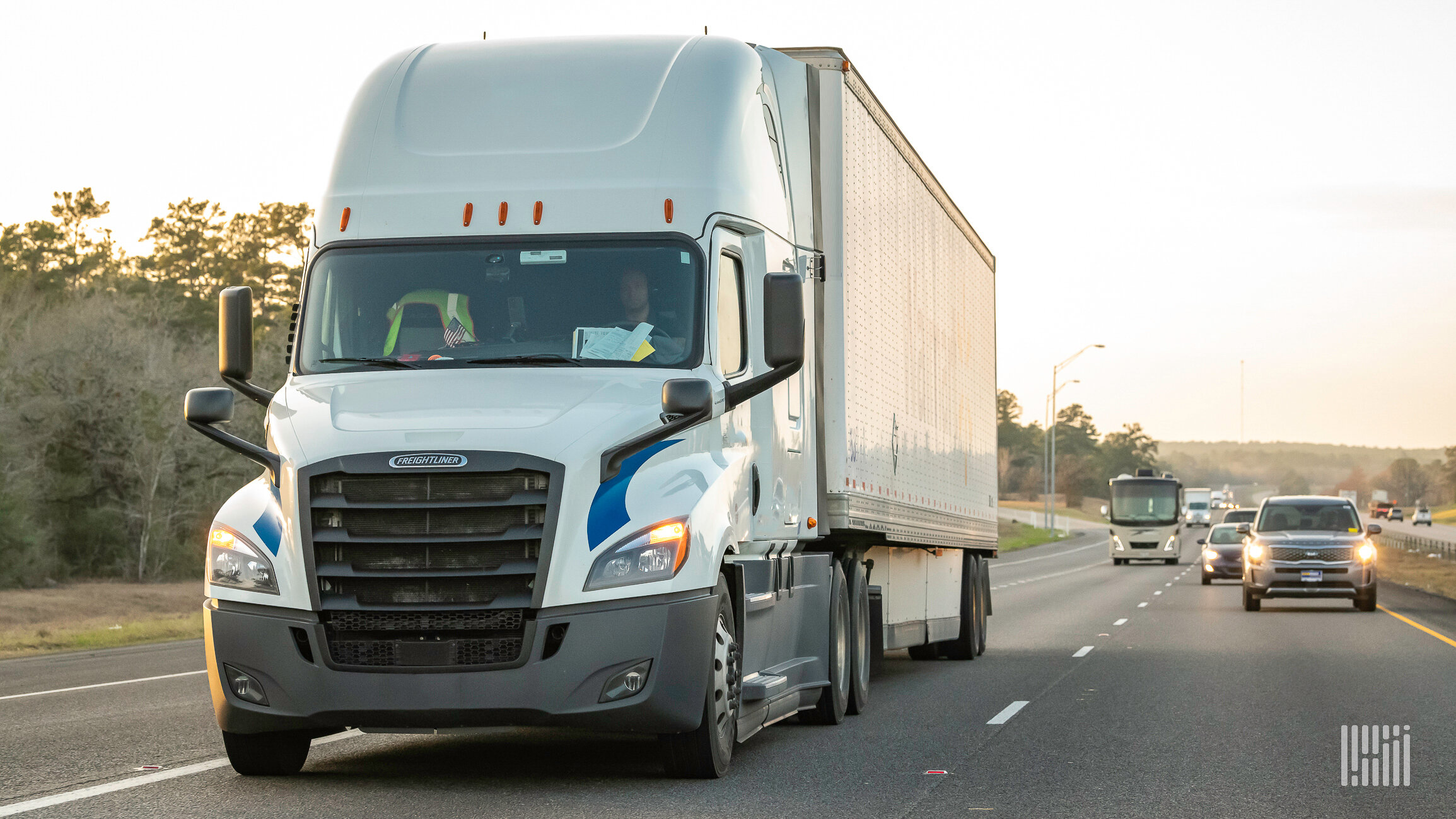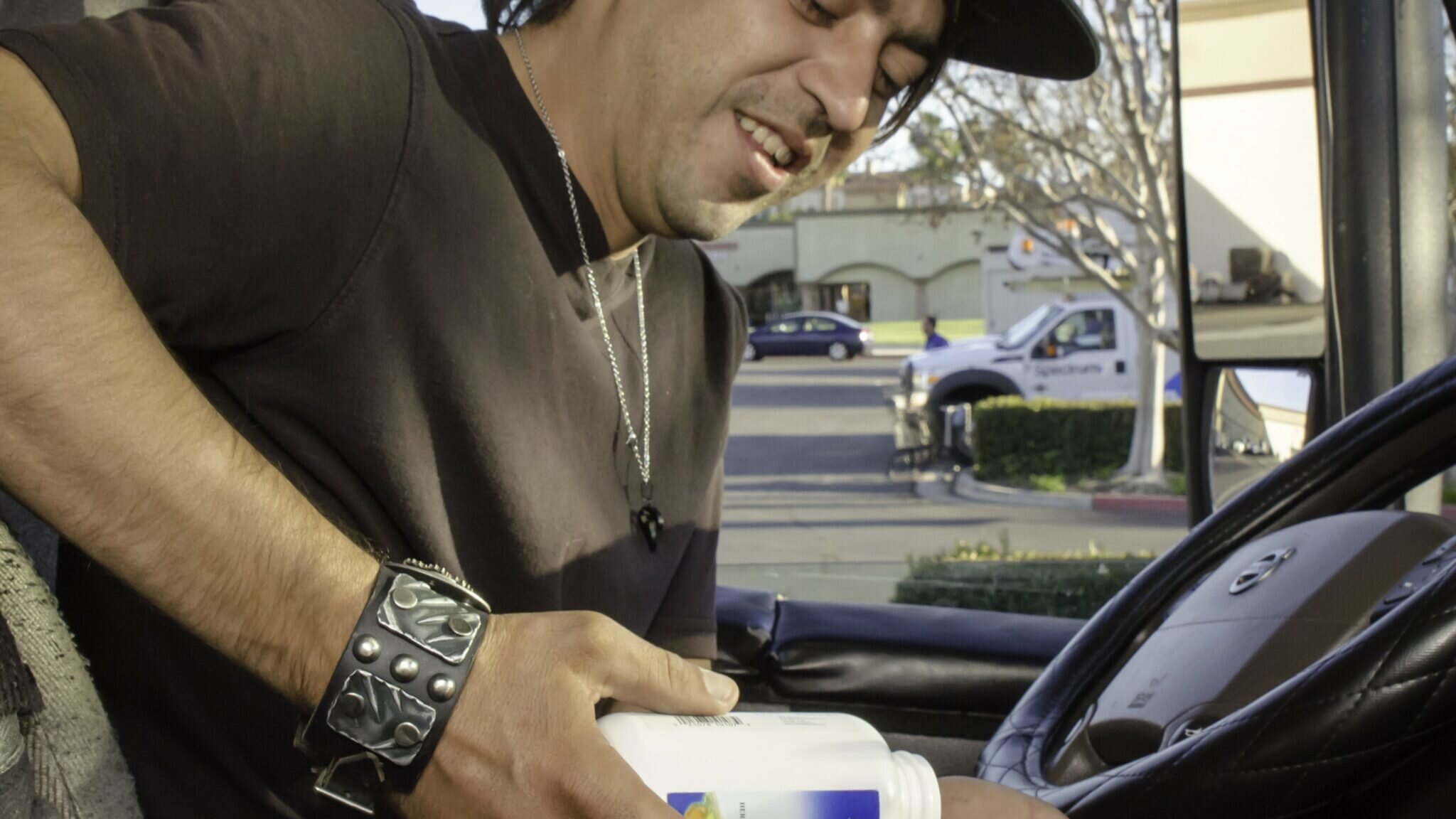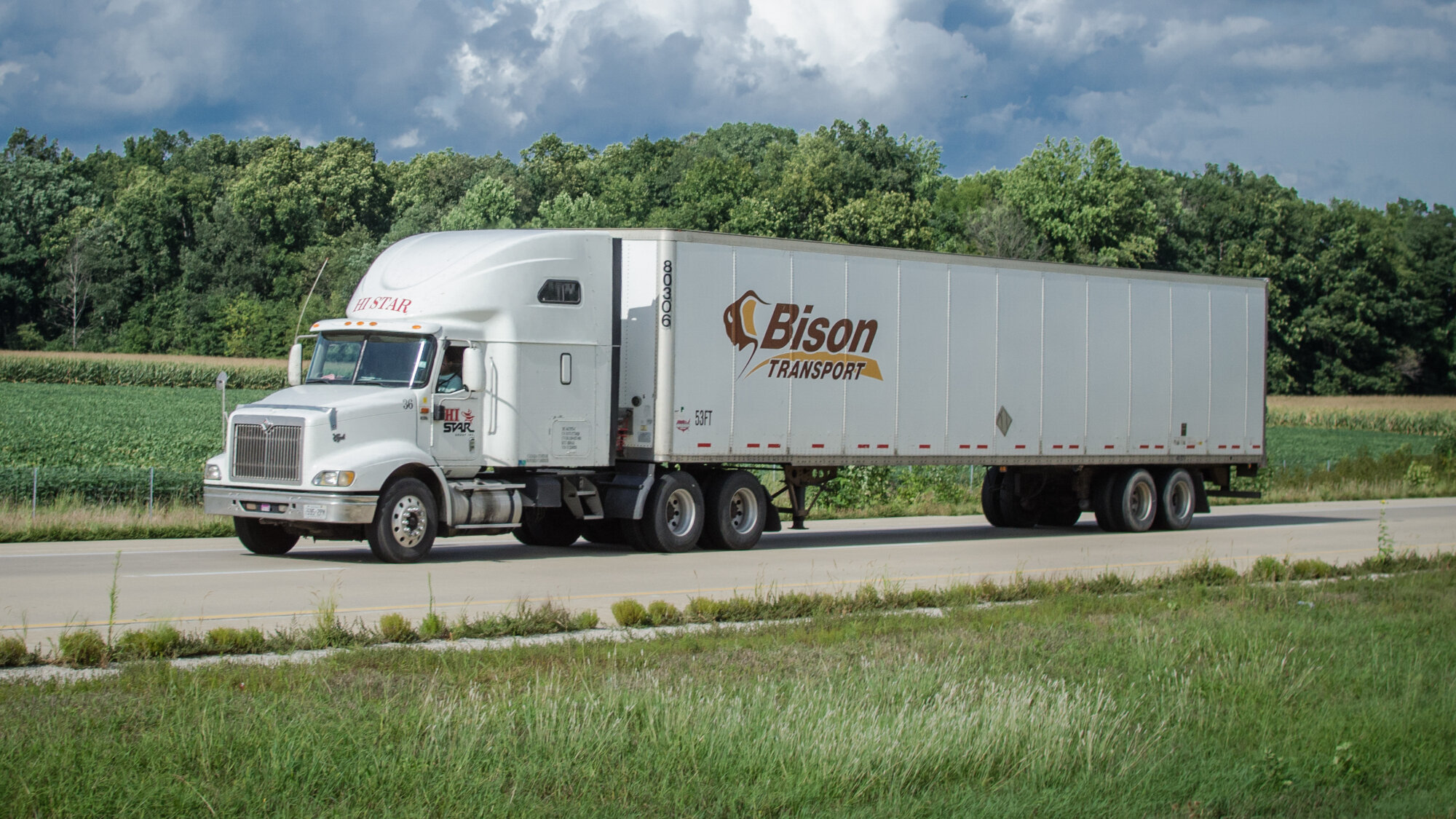
Many states have issued rules allowing carriers to haul more than 80,000 pounds, allowing critical food supplies to keep moving. (Photo: Shutterstock)
Many states have now issued exemptions for carriers hauling critical supplies to exceed 80,000-pound weight limit
President Donald Trump’s national emergency declaration on March 13 set in motion a wave of special overweight permits issued by individual states that are making a critical difference in helping carriers of food and other supplies respond to the COVID-19 crisis, according to retailers.
According to the Food Industry Association, most states have relaxed their weight restrictions to allow loaded trucks weighing over the federal 80,000-pound limit to travel on interstate highways within the state (states control weight limits on non-interstate roads), with overweight allowances ranging from 1,000 pounds to 8,000 pounds or more.
While certain types of freight can fill a truck’s cargo space before the truck hits standard weight limits, carriers restocking grocery and pharmacy shelves with heavy pallets of freight such as water and canned goods can hit those limits before running out of haulage space.
“There is nothing more frustrating these days than opening the back of the truck at the warehouse dock or at the retailer and finding out that you could have loaded four more pallets of food,” Dan Shaul, state director of the Missouri Grocers Association, told Truckloadindexes.com. “So I don’t think you can overestimate how much these special overweight permits are helping us.”
Shaul said that after the national emergency was declared, many states initially issued overweight permits that allowed for 10% over the federal limit, or 88,000 pounds – including Missouri.
“That was a good step, but we found that most trucks were still hitting the maximum weight before they cubed out. Missouri was allowing 100,000 pounds on everything but the interstates, so we worked with the Missouri Department of Transportation to expand that to the interstates as well. So for the last two weeks we’ve been able to move at that higher level across every corner of the state as long as we don’t hit bridge or local road restrictions.”
Shaul said that “elasticity” within the grocery supply chain has snapped back from being stretched within days after news of a sudden uptick in coronavirus cases in early March. “This is the first time our country has dealt with something like this coast-to-coast and state border to state border. People realize they don’t have to buy four weeks of food in one day. The panic buying is over, it’s the resupplies that we need now.”
Shaul also said that having a national emergency weight limit of at least 100,000 pounds would likely help with bottlenecks caused at the border for cargo hauls moving between states with differing weight limits. “Each state has its own rules, but if the feds wanted to do that I would welcome it,” he said. “You want to preserve states’ rights, but you also want to make sure the infrastructure is addressing our needs as well.”
A U.S. Department of Transportation official was not able to immediately comment on the administration’s authority or willingness to make changes to federal weight restrictions during the crisis. The official did note, however, that the CARES Act, which President Trump signed into law last week to provide monetary relief for small businesses affected by the coronavirus pandemic, includes a provision clarifying the ability of states to issue overweight permits during a national emergency even if the state is not operating under a “major disaster” declaration.
“Because the President declared [COVID-19] a national emergency but may not have yet declared a major disaster for a particular state, there was question as to whether that state had the authority to issue overweight permits, based on the way the regulation had been written,” the DOT official told Truckloadindexes.com.
“This change makes it clear that states can do so under either situation, and will help ensure the continued free flow of critical relief supplies and other essential goods when responding to the recovery efforts during emergencies like the current pandemic.”




















